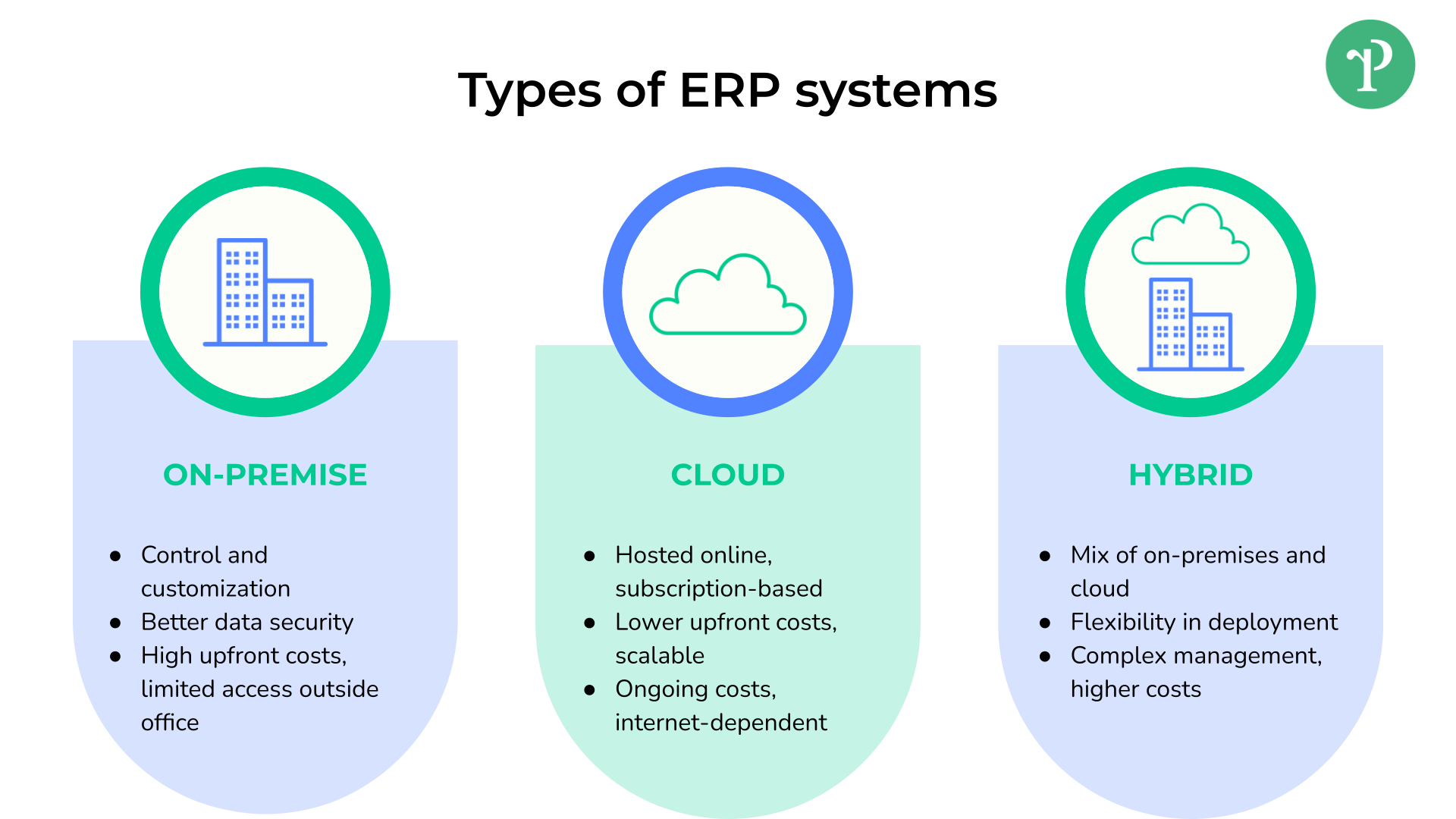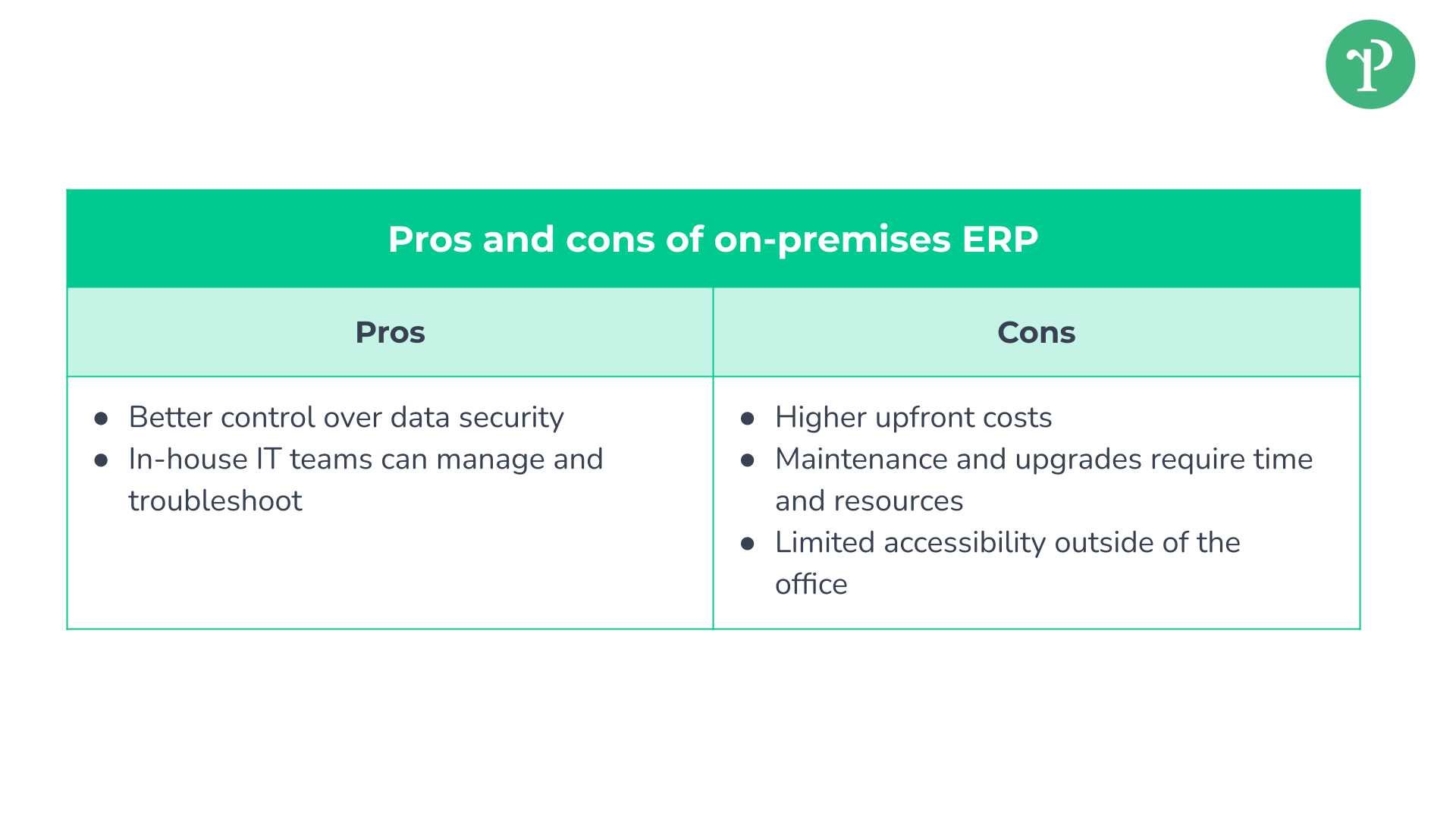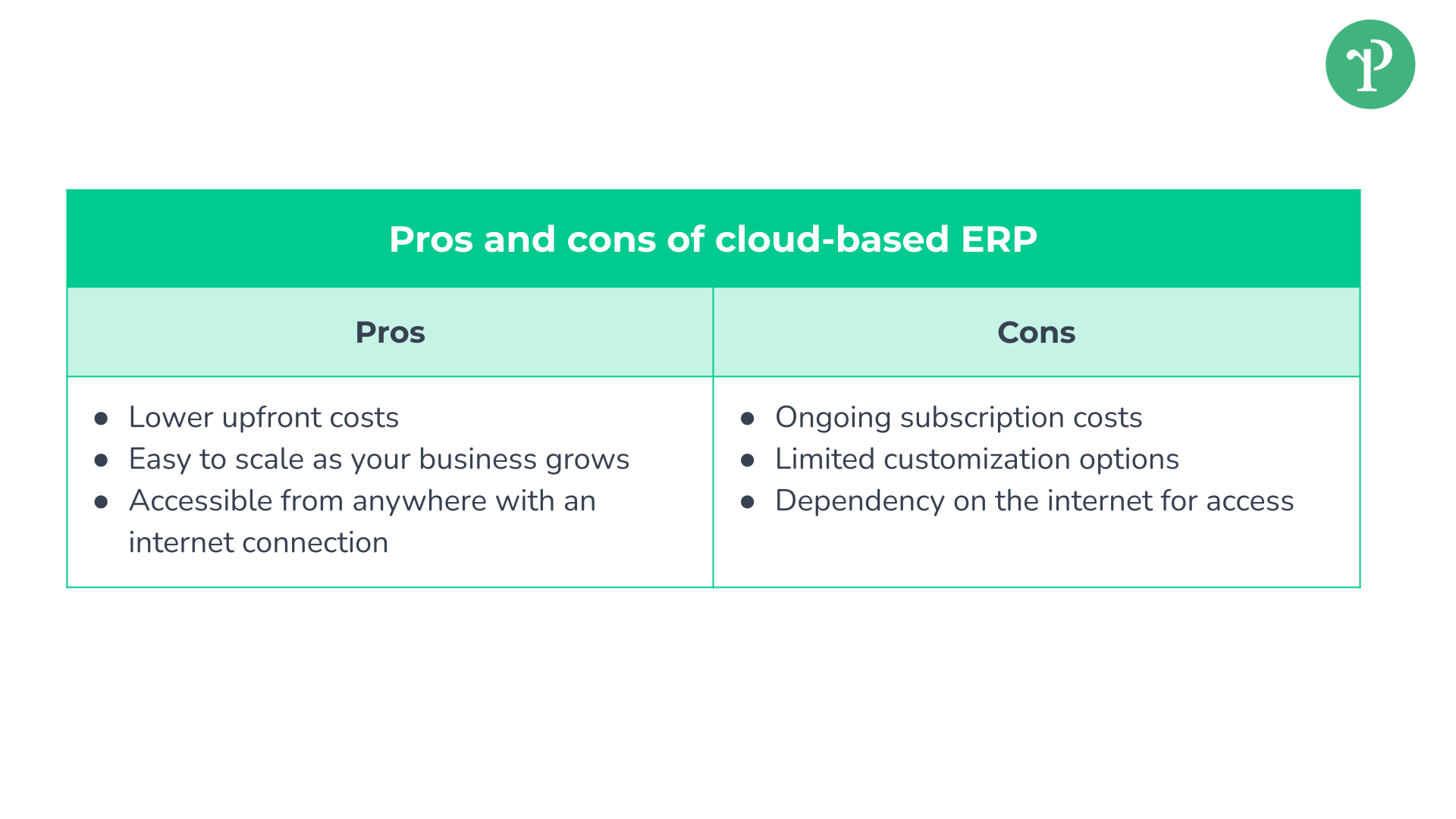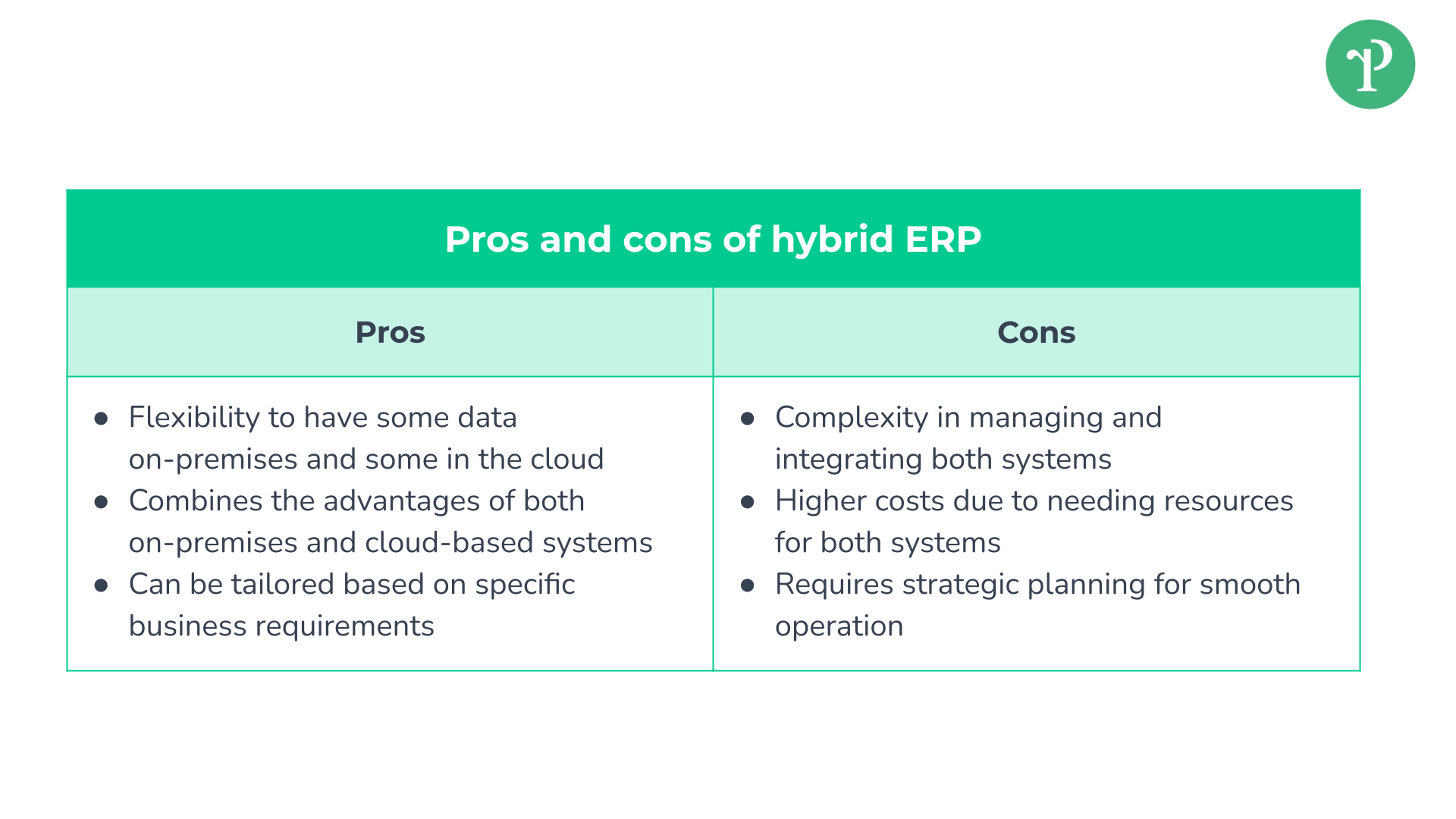When it comes to Enterprise Resource Planning (ERP) systems, businesses have a variety of options.
Understanding the different types of ERP systems can help businesses choose the right ERP software that best fits their needs and helps streamline business processes.

On-premises ERP systems
On-premises ERP solutions involve installing the ERP software on the company’s hardware and servers, often managed by the company’s IT staff.
This type of enterprise resource planning system offers high levels of control and customization.
It’s often used by larger companies with complex business functions and a significant IT budget.

Advantages of on-premises ERP:
High degree of customization: Businesses can tailor on-premises enterprise resource planning software to fit their unique needs.
Data control: All data resides on the company’s servers, offering greater control over security and privacy.
Offline access: Since data is stored locally, you can access your ERP system even without an internet connection.
Disadvantages of on-premises ERP:
High upfront cost: On-premises ERP systems require significant initial investment for hardware, software, and IT staff.
Maintenance: You are responsible for maintaining and updating the ERP system, including dealing with legacy systems and manual processes.
Scalability: Scaling up the system requires additional hardware and software purchases, which can be costly and time-consuming.
Cloud-based ERP systems
In contrast to on-premises solutions, cloud-based enterprise resource planning systems are hosted on the ERP vendor’s servers and accessed through the internet.
Cloud-based ERP software, like Oracle ERP Cloud and Microsoft Dynamics, is gaining popularity due to its flexibility, scalability, and lower upfront costs.

Advantages of cloud-based ERP:
Lower upfront costs: Cloud ERP typically operates on a subscription basis, reducing the need for substantial initial investment.
Ease of maintenance: The ERP vendor handles updates and maintenance, freeing up your IT staff to focus on other tasks.
Scalability: You can easily scale your ERP system to accommodate business growth.
Disadvantages of cloud-based ERP:
Limited customization: While some customization is possible, it’s typically less than what you can do with an on-premises system.
Dependence on internet connectivity: You need a reliable internet connection to access your cloud-based ERP system.
Data control: The ERP vendor manages your data, which might pose concerns for companies with strict data privacy regulations.
Hybrid ERP systems
For some businesses, a blend of on-premises and cloud-based ERP systems, known as a hybrid ERP solution, is the best fit.
This approach allows companies to keep some data and functions on their own servers (like financial accounting or human resources) while using cloud-based ERP for others (like customer relationship management or inventory management).

Advantages of hybrid ERP:
Flexibility: Hybrid ERP provides the best of both worlds, allowing businesses to choose where to host different aspects of their ERP integration.
Control and convenience: Keep sensitive data in-house with on-premises ERP while enjoying the convenience and cost savings of cloud-based ERP for other functions.
Disadvantages of hybrid ERP:
Complexity: Managing a hybrid ERP system can be complex, requiring a careful balancing act between on-premises and cloud components.
Integration: Integrating on-premises and cloud-based systems can pose challenges.
Making the right choice for your ERP system
The right type of ERP system for your business depends on a variety of factors, including your industry, size, budget, and specific business processes. Here’s a simplified way to approach the decision:
Small businesses with standard business processes might find cloud-based ERP systems, like Oracle Cloud ERP, more manageable and cost-effective.
Businesses with specific customization needs or strict data control requirements might lean towards an on-premises ERP software.
Companies with a mix of standard and unique requirements may find a hybrid ERP solution the most effective.
Understanding ERP professionals
Implementing an ERP system is a complex task that requires a diverse range of skills. To achieve a successful ERP implementation and maintenance, businesses often need to hire or consult with various types of ERP professionals.
ERP Consultant
ERP consultants have a broad understanding of ERP software and can help guide your business through the process of selecting and implementing an ERP system. They understand the various types of ERP systems, and can help identify which one is the best fit for your business needs.
ERP Developer
An ERP developer is a programmer who customizes the ERP system to match the specific requirements of a business. They can modify existing features or develop new ones, making sure that the ERP software aligns with your business processes. Unsure about what to consider when hiring freelance ERP developers? Our latest post breaks down the top skills to watch for.
ERP Administrator
ERP administrators are responsible for managing and maintaining the ERP system once it’s up and running. They ensure data integrity, handle user permissions, manage updates, and troubleshoot any issues that arise.
ERP Analyst
ERP analysts often bridge the gap between the technical team and the business users. They understand the business requirements and work with the technical team to translate these needs into technical specifications.
Each of these professionals plays a crucial role in the ERP implementation and maintenance process, contributing to a successful ERP strategy that boosts efficiency and productivity. When selecting your ERP solution, consider the ERP professionals you’ll need to make your project a success.
Conclusion
No matter which type of ERP system you choose, the goal remains the same: to streamline your business processes, from supply chain management to financial management, warehouse management, and beyond. By understanding the advantages and disadvantages of on-premises, cloud-based, and hybrid ERP systems, you can make an informed decision that best supports your business goals.












